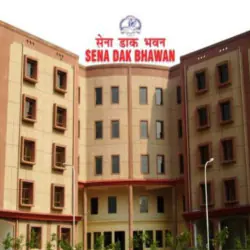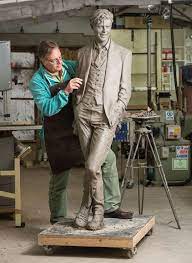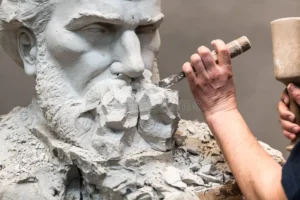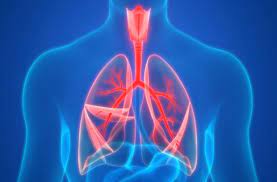The rise of e-commerce companies all over the world and demand for receiving goods at the doorstep has given rise to new and exciting Career in Postal and Courier companies.
This is the era of consumer revolution where the customers expect the companies to provide them with goods at the right time and right place and with no damage. The prompt delivery of goods in the safe hands of customers has become extremely important factor in the supply chain of industry be it in food industry like Zomato or Swiggy, your daily household items from a local departmental store, and delivery of items in electronics like mobiles & laptops, household items like bed-sheets, furniture, lamps etc. from an E-commerce store like Amazon. or deliver your credit cards and important documents from Speed post and letters from ordinary post.
Employees working in both Postal and courier companies plan, organize, direct, control and evaluate activities and operations in postal facilities and in courier business.
Postal and Courier Companies Job Description
Both courier and postal company employees perform the following duties for their company at different job profiles.
- They manage the activities and operations of postal facilities and courier service companies.
- They coordinate the duties of supervisors and other staff.
- They manage the movement of mail and parcels through postal and parcel sorting facilities.
- They are responsible for the delivery of mail and parcels to the customers’ doorsteps.
- They review the effectiveness of assigned operations and make changes to postal and courier operations.
- They prepare and submit budget estimates and administer the expenses of postal and courier facilities.
- They are responsible for hiring and providing for staff.
Courier Company vs. Postal Company
Even though both Postal and Courier companies offer similar services they have many differences in their costs, quality and reliability.
Firstly, the Post Office is a government organization whereas courier services are run by private organizations.
Secondly, the prices at which postal companies offer their services are less than what you have to pay if you hire a courier company.
Thirdly the Postal companies’ services have limited features compared to that of courier companies. Being a government run organization the postal company is customer friendly nor is it that reliable and speedy vis- a -vis a courier company.
Courier companies also render services for big items like furniture and household items delivered in their trucks to our residents which the postal companies do not entertain.
What is a Postal Company?
The Postal company is responsible for delivering mail(post), remitting money by money orders, providing life insurance coverage under Postal life insurance (PLI) and Rural Life Insurance (RPLI) , accepting deposits under Small Savings Schemes and providing retail services and providing retail services like bill collection, sale of forms, and other services. It is a total government organization.
The Indian Postal company comes under the department of posts which is a part of the Ministry of Communications and Information Technology under the Government of India. There are 154,965 Post offices in India now. This makes a career in Indian Postal Services secure.
Here are a few of the services offered by the postal department.
1. Mail Services
Mail services delivery of letters, postcards, Inland letter cards, book packets, value payable post, parcels, speed post articles, registered articles, etc.
2. Financial Services
The postal company is responsible for payment of ordinary and instant money orders. Today the Post office offers financial services like saving schemes, postal life insurance, rural postal life insurance, fixed deposits scheme etc.
3. Philately
The postal companies conduct philatelic activities like designing, printing, and distribution of special/commemorative postage stamps and other postage stamps/service postage stamps.They monitor and promote philatelic exhibition within the country, participate in international and world exhibitions. They are responsible for the management of the National Philatelic Museum, Dak -Bhawan.
4. Counter services
Postal Companies offer counter services at post office like sale of postage stamps and postal stationery, booking of registered,insured, speed post and other mail articles, booking of money orders, electronic money order and philately products.
How can you start a Postal Company Career?

Joining a Postal company job near you requires certain skills and education qualification from the aspirants to qualify for the specific posts.
Skills
Some of the necessary skills that are required for you to join a post office are given below.
- Strong Leadership skills
- Excellent organizational skills
- Problem solving
- Planning
- Decision making skills
- Self-Confidence
- Excellent communication and interpersonal skills
- Planning Skills
Educational Qualifications
Post office jobs require certain educational qualifications and certification from you to be eligible for different posts.
- First you must have passed your 10+2 examination from a recognized board.
- You must have completed a university degree or diploma from a recognized institute.
- You must have a few years of supervisory or operational experience within the postal facility.
- You can move to a senior management position with experience.
Since the educational qualifications for the candidate vary with the posts there are different eligibility criteria.
For example, the candidates applying for the posts of Postal assistants in post offices, Sorting Assistants in Railway Mail Service and Postal/Sorting Assistants in Army Postal Service should have the above educational qualifications with English as a compulsory subject.
The candidates must be able to read and write the local language of a particular state fluently and must have it as a subject till matriculation e.g. one must have studied Telugu to be eligible for various posts in the state of Andhra Pradesh.
For Postal Assistants of Circle Office and Regional offices you must have a typing skill in Hindi at the speed of 25 words per minute or in English at the speed of 30 words per minute. Knowledge of computers is essential.
The recruitment on Indian Postal Services is carried out through written examination and interview. Senior Positions like those of Officers are carried out through civil service examination conducted by Union Public Service Commission (UPSC) which requires a bachelor’s degree.
You must be aged between 18 to 25-27 years to be eligible for the entrance exam. This age limit is relaxing Ible for SC/ST by 5 years and OBC by 3 years.
Career Scope in Postal Company in India
In India the department of posts function under the brand name “India Post” which is under the government of India. It is generally referred to as the Post Office. A career in Indian Postal service may not be in league with government services like IAS, IPS, IPS, Bank PO, etc. but is a unique government job that offers job satisfaction and provides us the opportunity to serve people from all walks of life. Indian Postal Service (IPoS) comes under the category of Group “A” central Services of India and is a part of the Ministry of communications and Information Technology under the Government of India.
Indian Postal Company Job Profile
Candidates who are looking to make a career in an Indian Postal company can apply for a number of jobs as per the vacancy available. They have to fill out the Postal Service job application.
India has been divided into 13 postal circles. Each Circle is divided into regions. Each region is further divided into divisions and divisions have subdivisions.
With such a massive structure, there are plenty of postal job opportunities available in the Indian Postal Service. Here are some of the job profiles available with the Indian Postal Company.
-
Gramin Dak Sevak (GDK)
Gramin Dak Sevak (GDS) is one of the most competitive jobs under the Indian Post.It has four job profiles which are given below.
- Branch Post Manager (BPM)
- Mail Deliverer (MD)
- Mail Carrier/Collector
- Packer
-
Multi- Tasking Staff (MTS)
Multi-Tasking staff are responsible for conducting miscellaneous duties in the post office.
-
Postman or Mailman
Postman delivers mail and collects signatures from the recipients.
-
Mail Guard
The Mail Guard is responsible for checking and collecting the bags from sorting offices and delivering them to post offices in the early hours and vice versa.They are similar to postmen in terms of pay and job status.
-
Postal Assistant or Mail Clerk
Postal Assistant is responsible for the disposal of mails and maintaining the data in Indian Postal Service.
-
Postmaster
A Postmaster is the head of an individual post office. He is responsible for all postal activities in a specific post office. He is responsible for an entire mail distribution, establishment of letter-carrier routes, supervision of letter carrier and clerks, and rules and regulations enforcement in the post office.
Salary in Postal Company
The salary structure in a postal service department depends on the positions held by you. You can start your career in a postal service department as a trainer/probationer officer. Then can move on to junior time scale, senior time scale, junior administrative grade, senior administrative grade, principal chief postmaster, member postal service and then to secretary of India.
The Postal service department officers and employees are entitled for Basic pay + Dearness Allowance + Non-Practicing Allowance +Transport Allowance + House Rent Allowance + Special Allowance + House Rent Allowance + Transport Allowance according to their positions held.
What is a Courier Company?
A courier company is a company that helps in the shipping and delivery of goods from one place to another. You just have to hire a courier company to deliver a particular product to your customer.
Courier Companies have evolved a lot since their inception that took place in ancient Greece where the concept of messengers was created to deliver messages. It was developed into an industry in Persia to deliver vital messages. The courier industry has now grown beyond the primary function of delivering messages to the intended recipients into a billion-dollar business. The technological advances have led to the advent of e-commerce and online stores that have become lifeline to thousands of other businesses who register their businesses here.These e-commerce companies accept orders and deliver the products to their customers.
Today we have many courier companies like FedEx, Blue Dart, DTDC, Delhivery, DHL etc. which operate all over the country and world.
Types of courier companies
With hundreds of courier companies all over the world they are differentiated into four types.
1. Express Courier Companies
These specialize in delivering packages and letters on the same day. This type of delivery service often works within city limits. Law firms use this type of courier service frequently.
2. International Courier Companies
International Courier Companies are Global shipping companies who offer international shipping services. They have their own delivery trucks, buses and even jets to provide exceptional customer services to their clients. They work with other courier companies to rent these in case they don’t own one.
3. Overnight Courier companies
Overnight courier companies specialize in overnight delivery. They guarantee delivery of goods to their customers within 24 hours thus assuring them complete peace of mind.
4. Standard Courier companies
Standard courier companies provide a reliable delivery service but with longer time limits.
How does a courier company work?
It is important for us to know the working of a courier company for a courier service career.
A courier company delivers products to their customers.
The work is very simple. The customers are assigning a courier when the order is placed by them, and the courier company picks up and delivers the package to the receiver within the given period.
Most of the products that are handled by the courier companies are meant to be delivered to the customers.by various businesses. The rest are held by legal entities and individuals.
Some of the businesses that courier companies serve are E-Commerce, Groceries, Restaurants, Florists, Pharmacies, Hospitals, Clinics, Pet- stores and Beverages outlets.
Let us understand the organizational structure and key operations of a courier company to understand the working of a courier company.
Organization structure of a Courier company
-
Head Office
The Head office forms the central command of a courier company. All the decisions regarding company strategy, finances, marketing and human resources are made.
-
Branch Offices or Depots
All Courier companies operate a network of branch offices or depots spread across all over the region. These offices serve as local hubs for courier operations like parcel collection, sorting and dispatching.
-
Delivery Staff
The delivery staff is the lifeline of a courier company. They are responsible for the last stage of delivery operations and ensure that the parcels reach their intended recipients safely.
-
Support Staff
The support staff consists of the customer service executive. They also provide tracking information to customers. They also handle queries and complaints of the customers.They also include a logistics planner, IT staff and others who ensure that the working goes smoothly.
Key operations of a Courier company
-
Collection
This operation includes collecting parcels from business premises. Courier depots or individual homes.
-
Sorting
All the parcels that are collected are brought to a central hub where they are categorized based on their destination postcodes. Nowadays courier companies use automated systems to sort parcels quickly and efficiently.
-
Transportation
This is the next stage of operation when the sorted parcels are transported to their respective destinations in two-wheelers, trucks. Vans, trains, planes and ships.
-
Delivery
Once the parcel reaches its destination area, they are further sorted out for individual couriers based on their delivery routes. The courier delivers the parcel to the recipient’s doorstep.
-
Real-Time tracking and customer support
Modern courier companies provide real-time tracking for parcels like scanning parcels at multiple points and updating the status on a central system that is accessible by customers.
All courier companies have customer service departments to handle customer queries, complaints, and provide information to customers about services, price and parcel status.
How can you Join a Courier company?
You require a unique blend of skills and educational qualifications for jobs in a courier company.. Below is a list of skills you might consider enhancing to qualify for courier company jobs.
- Physical Stamina
- Strong communication skills
- Good customer service skills
- Familiarity with Navigational tools like GPS to find efficient routes
- Clean driving skills
- Punctuality, time management and sense of urgency
- Reliability and trustworthiness.
- Leadership and teamwork
- Organizational skills
Educational Qualifications
To Get a job in a courier service , you must have cleared your high school, which is the basic requirement. Then you must complete your bachelor’s degree. In a survey it was found that 35% of all employees working in courier companies in different positions are graduates. In case you want to reach senior management level in a courier company then you must have management degree in logistics, finance or administration depending on your job profile.
Why should one join a courier company?
Market Overview
The courier industry is set to witness significant growth worldwide in the coming years leading to the rise in demand for various courier jobs. This growth is primarily due to the growing demand for services Industry, Wholesale and Retail Trade, manufacturing, Construction and Utilities, others.
The world courier industry is $467 billion in 2024 and is growing at a annual growth rate of 6.5% CAGR.
North America (US, Canada and Mexico) leads the courier market followed by Europe, Asia-Pacific and South America respectively.
Indian Scenario
The Indian Courier industry is expected to be $8.50 billion by the year 2024 and is predicted to grow to $ 16 billion by 2030 with an astounding growth rate of 17% CAGR approx. This growth is attributed to the high growth of the E-commerce sector in India which has fueled the demand for courier service.
With this rapid expansion in the courier industry there is a lot of opportunities for the aspirants who want to join this industry both as an entrepreneur or as an employee.
Salary of courier executives
The salary depends on the designation that one holds in a company. The Delivery executive in India earns a salary of Rs 165,000 to Rs 365,000 per annum. The managers earn much more.
Courier companies in India
With more than 120 courier companies in the Indian market the current e-commerce penetration rate in 2023 was around 76.7%. Thus there are a lot of job vacancies in courier companies. Here is the list of top courier companies in India
- Blue Dart Express
- Delhivery courier service
- DHL Shipping Service
- DTDC Courier Service
- Gati Courier Service
- Xpress bees Courier service
- Fedex Courier Service
- E.Com Express
Conclusion
The future growth rate of the courier industry is very fast, efficient and environmentally friendly due to the ongoing advancement of technology. Courier companies who are ready to embrace these technological innovations and continue to meet the expectations of their customer are going to stay ahead of their rivals in the industry



































































